Sharing the history, growth, and ministry of Peachtree Road UMC… one story at a time.
A LEGACY PROJECT OF PEACTHREE ROAD
404.266.2373
[email protected]
prumc.org

Senior Pastors
Rev. T. Cecil Myers 1976-1984
Rev. John M. Minter 1984-1988
Bishop Mac B. Stokes 1988
Rev. Donald A. Harp 1988-2008
Peachtree Road Storybook opens a new chapter – “The Great Expansion Years”, an exciting and vibrant time in church history. While volumes could be written about the growth of Peachtree Road during these twenty-five years, the goal of Storybook is to share the major events in a way that gives you, the reader, a summary of those amazing years.
The history of the Peachtree Road Church is one of the most storied histories in Methodism. I am grateful to have been a small part of that great history.
Don Harp
3180 Peachtree Road was (and still is) a significant address for Peachtree Road United Methodist Church. Being visible for 51 years on Atlanta’s well-known street – right in the middle of the growing Buckhead community – our church had grown significantly and was primed for continued expansion. Nestled between Interstates 75 and 85 and in proximity to Emory University, the Governor’s Mansion, and growing residential and business communities, this well-located church of ours was juxtaposed for launching into the new century. The approaching 21st Century proved to be a magical time. While location certainly set Peachtree Road up to be an amazing gathering place for worship, a church must have more than a good address to grow its congregation as well as its programs.
It needs dedicated leadership, both lay and clergy, to enrich the sacred soil upon which it resides. Peachtree Road quickly established its reputation as a place to hear inspirational messages by gifted pastors and exceptional music on a consistent basis. The two combined to attract families as well as college students and single adults who came regularly and built their lives around the vibrant church. To this day, family legacies pass down their love and lasting commitment to this church we call Peachtree Road.
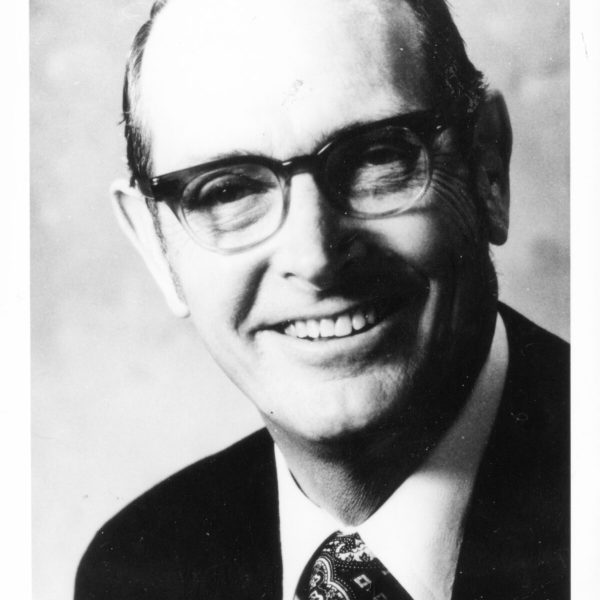
In 1976, Reverend Cecil Myers took the leadership helm. Known for his sincere and inspiring messages, Cecil’s preaching motivated people to grow in their faith. Gifted as a writer, he was a nationally known lecturer and a popular speaker on college campuses. According to Lois Coogle, Dr. Myers said that he did the preaching at Peachtree Road, but Bob Dixon did the rest. Bob held the job of Coordinator of Program Ministries from 1972 until 1979. He is remembered as a creative leader bringing the gospel to the people through drama. These excellent leaders helped create dynamic programming that reached every age and interest group in the congregation.
Dr. Myers felt the church needed visibility to carry out the church’s purpose- evangelism. The early 80s brought the beginnings of a tape ministry as well as radio and television broadcasts of the Sunday service. With strong messages from the pulpit and creative programming throughout the week, the church needed more room – especially for dining and fellowship activities.
Food service had always been a vital part of church life with weekly attendance reaching as many as 450. In 1976 Carolyn Clayton succeeded Mary Stewart as church hostess and plans were revived from a 1972 proposal from the Council on Ministries to create the Fellowship Hall (now Grace Hall). In January of 1978 over 1200 people attended celebration dinners provided by the church staff
You might ask, “And how did the church staff feed so many?”
If you asked Carolyn Clayton how she did it, she would give credit to her assistants for the success of the food service at Peachtree Road. One name known to many through the years is Delmar Bethea who, for 28 years, served her church family with delicious and sought after recipes like fried chicken and chess pie.
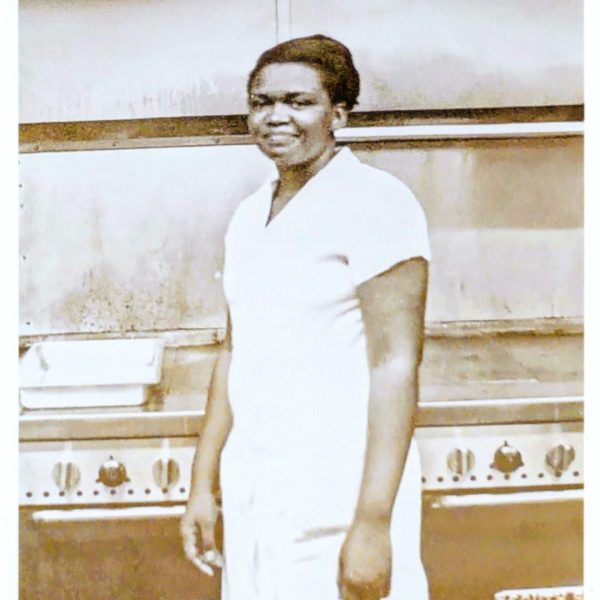
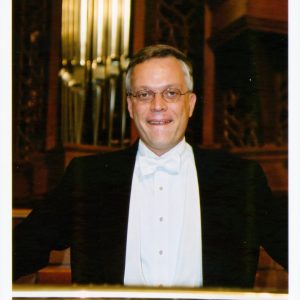
During Dr. Myers tenure, Jerry Black was organist and choir director with the assistance of Carolyn Brooks, who directed the children’s choirs from 1978-1981. In 1982 Clinton Thatch became Minister of Music. It was under his leadership and that of the organist and Assistant Director, Scott Atchison, six choirs performed outstanding musical programs throughout the year.
Not surprisingly, members of Peachtree Road found many ways to serve the needs of others during these years. Assisting children and families in the inner city, providing Meals on Wheels to senior citizens, offering tutoring for young adults and support for babies at Grady Hospital are just to name a few. These efforts continued, growing and adapting to meet the needs of the community.
After Dr. Myers retired in 1984, Dr. John Minter became the 15th pastor of Peachtree Road. Kind, dedicated, and spiritual, Dr. Minter had been the pastor for 10 years at St. James United Methodist Church, a church originally sponsored by Peachtree Road.
Dr. Minter was known as a Biblical scholar. He wrote powerful messages each week in the publication “Light on Peachtree”, a mailed publication to church members. To further encourage study on an individual basis, Reverend Charles Neal, worked as minister to singles and adult education for three years, organizing the DISCIPLE program, an intensive, 34-week study of the Bible.
With an emphasis on outreach, Peachtree Road began serving in a new capacity in 1987. One of five churches in the Buckhead area, Reese Turrentine, pastor for outreach, led the charge to assist families with finding affordable housing, food distribution and offering spiritual counseling. Souper Sunday became another focus. Peachtree Road participated in serving soup and sandwiches once a quarter to a group of people at Trinity United Methodist Church.
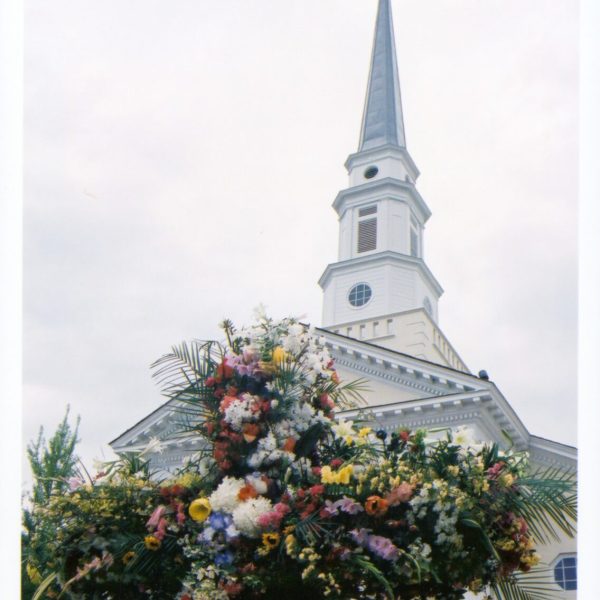
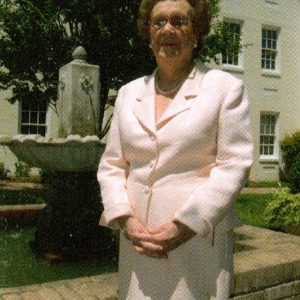
The church needed a comfortable space for families to gather before a wedding or funeral. Margaret Sudderth chaired a committee to transform the former Exhibit Room into a beautiful parlor for all the church to use. It was furnished and completed in 1987.
A Celebration of Birth began during these years. Ruth Cousins, President of the United Methodist Women, worked with a committee to honor 30 Peachtree Road families with children under 18 months old. To celebrate Baby Day, A gift to missions was made in honor of the children and a certificate was presented to each family.
A light to those in darkness.
Sometime during the tenure of Dr. Minter, it was discovered that the light in the steeple had gone out. This outward sign of God’s light was suggested by Dr. Nat Long when the new sanctuary was built in 1949. Dr. Minter wanted our church to continue to be “a light to those in darkness” and worked with Mr. and Mrs. Carl Kowalski who provided the funds for the relighting of our steeple in 1986.
When Dr. Minter was Senior Pastor in 1984, the chairperson of the Administrative Board was Palacia Seaman. Having joined the church in 1953, she probably held more leadership positions in the church than any other member. She began teaching children in Sunday School and was recognized for her leadership skills. Over the years, one of her most outstanding tasks was chairing the Long-Range Planning Committee back in 1978 which resulted in the construction of Fellowship Hall.
She also chaired a Chancel Study Committee in 1986, meeting monthly for almost a year to recommend improvements in the liturgical space but due to cost and declining membership, the recommendations were put on hold.
In 1987, a two-way evaluation process by the staff-parish relations committee and the senior pastor ended with Dr. Minter choosing to return to his former position of district superintendent. Bishop Mack B. Stokes, bishop in residence, stepped in to serve as interim senior pastor from January until June of 1988 when Don Harp was appointed pastor of Peachtree Road.
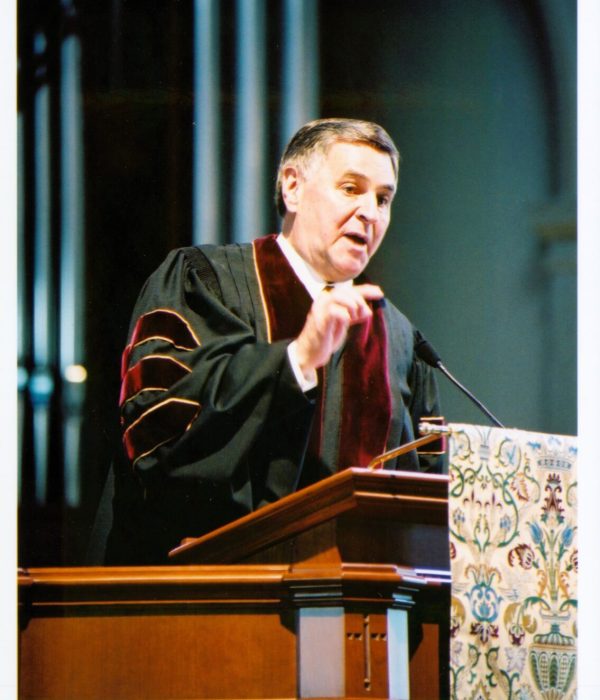
The key component to Peachtree Road’s ability to face challenges, expansion and change stems from the confidence in its devoted membership and the membership was deeply committed to keeping Peachtree Road a flagship church in United Methodism.
In 1988, Reverend Don Harp was appointed as Senior Minister. Coming from Gainesville with his lovely wife, Mary Ellen, Don was extremely extroverted and somewhat of a maverick. He had mantras like,
“Hire good people and let them go to work.”
“Just jump and build your wings on the way down in order to soar.”
“If you have a problem, please come and tell me how you fixed it.”
Don Harp was a truly relational person. After one meeting, he knew your name, and something about your background. When meeting someone new, Don would ask, “Where do you call home?’ He did not ask what you did or where you were born, but immediately connected to home, which opened memories. Don’s collegial charm wasn’t just in his relationships, but also in the pulpit with stories about his beloved family, Granny Harp, growing up in Inman, and fishing with his dad. He was Southern to his core.
Don would describe himself as “just a down-home, country boy”, yet he was a savvy businessperson and fundraiser. He never shied from asking people to give to the church because he believed it was the right thing to do. He reminded the congregation they have a responsibility to give back to God. Simply put, Don believed in people and in their desire to make use of their God given abilities for the glory of God.
His avant-garde, out-of-the-box leadership allowed the church to flourish in unexpected and amazing ways. People began flocking to the church. Not a Saturday would pass without a wedding. Families and single adults were joining Peachtree Road, and babies were baptized every Sunday. The church was primed for expansion, not just physical space, but for educational growth and community offerings as well.
In 1989, the leadership team met with Dr. Ken Callahan at a Council on Ministries retreat. The goal was to cast a vision for the future of the church. The first decision was to expand outreach by beginning the first Habitat house. (Those continue to this day, building our 53rd home in 2024.) Second, the council committed to making a place for children. In 1996, the Evelyn Gordy Rankin Children’s Building and the Rollins Center for youth and administration were completed. The third priority was a new sanctuary, but few thought that would happen anytime soon.
The church continued to grow. Talented staff coupled with energetic members committed to exceptional programming. Dr. Margaret Ann Crain was hired as the minister in charge of Christian education. Margaret was relentless in her advocacy of Sunday morning Sunday School. Sunday school classes continued to be formed, and the relationships garnered within those groups were sacred, lasting and lifelong.
Christian education was a pivotal part of Peachtree Road’s growth. DISCIPLE Bible Study grew by leaps and bounds under the direction of John Cromartie who came with Don from Gainesville. If you had not taken DISCIPLE, you felt like you had missed out. The yearning to understand Scripture was contagious.
With a more literate congregation came a more committed congregation, understanding that as the world around us grows and changes, so should we. The church was brimming with people, overcrowded in a wonderful way. Susan Marshall, Director of Evangelism, emphasized hospitality to all from the minute someone stepped onto campus. She knew how to make people feel welcome. Always there to help, she made Peachtree Road synonymous with hospitality.
Mary Newell Bridges, who served on the Long-Range Planning Committee, remembers people having to sit on folding chairs outside the sanctuary and were asked to attend the early service to help with seating.
With all this growth, it is not surprising that in 1999, the church voted to build a new sanctuary. The groundbreaking was May 2000. Burt Bridges chaired the Building Committee. Mary Newell, Burt’s wife, remembers Don Harp saying he saved their marriage because he was getting Burt out of the house and back to church! As exciting as the two years of this great expansion were, growth and change are never easy, but excitement was in the air as everyone watched the steady progress of construction.
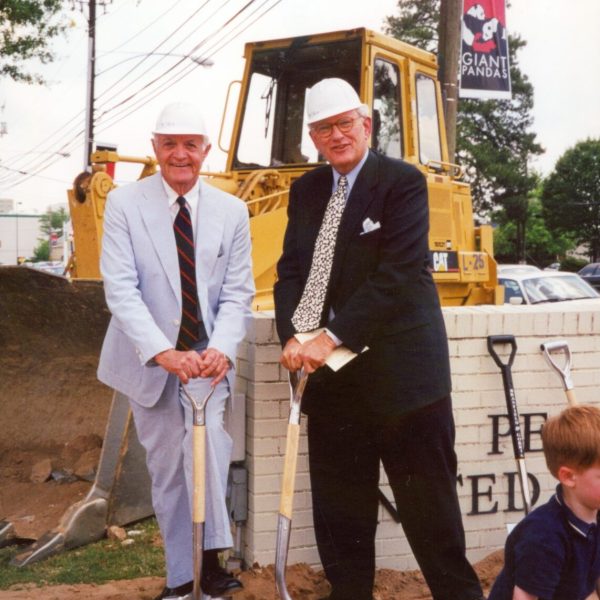
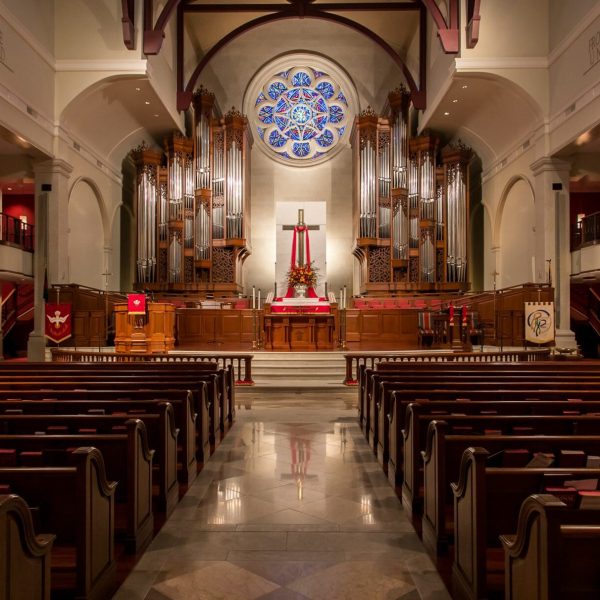
Peachtree Road United Methodist church opened its doors on March 31, 2002. The congregation, the choir, the acolytes, the clergy…..all walked from the former sanctuary into the new sanctuary singing,
Lord, prepare me, to be a sanctuary, pure and holy, tried and true. With thanksgiving I’ll be a living, sanctuary for you.
And that mantra and mission continued through the great expansion years. Don Harp served Peachtree Road for another 6 years until he retired in 2008. Bill Britt, who became pastor in 2008, wrote this about Don Harp upon his death April 20, 2021.
“Don was appointed to Peachtree Road in 1988, fell in love with the people of this community, and caught a vision of what this church could become. Through his tireless work and larger-than-life personality, he strived to make that vision a reality. Today, every facet of this great church’s ministry bears the mark of his faith, hope, and love.”
So much more could be written about these 25 vibrant years. Many topics merit their own individual story – like music, missions, outreach, youth, and recreation just to name a few. As we move through this Centennial year, be watching as we continue to tell the stories of Peachtree Road.
– Written by Mace Hall
(Contributions by Marcia Gaddis and Mary Newell Bridges)
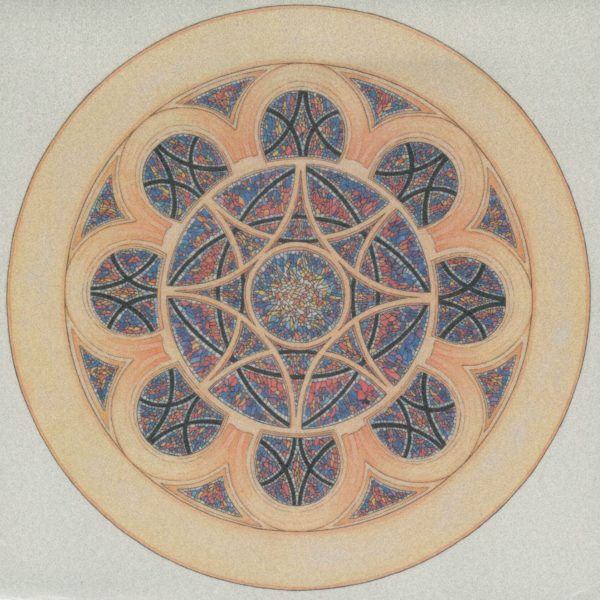
Sharing the history, growth, and ministry of Peachtree Road UMC… one story at a time.

A LEGACY PROJECT OF PEACTHREE ROAD
404.266.2373
[email protected]
prumc.org